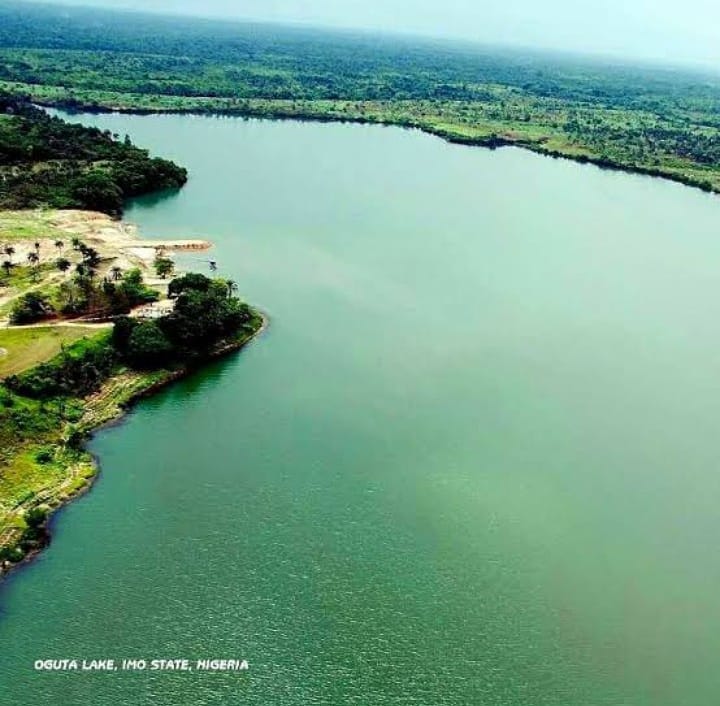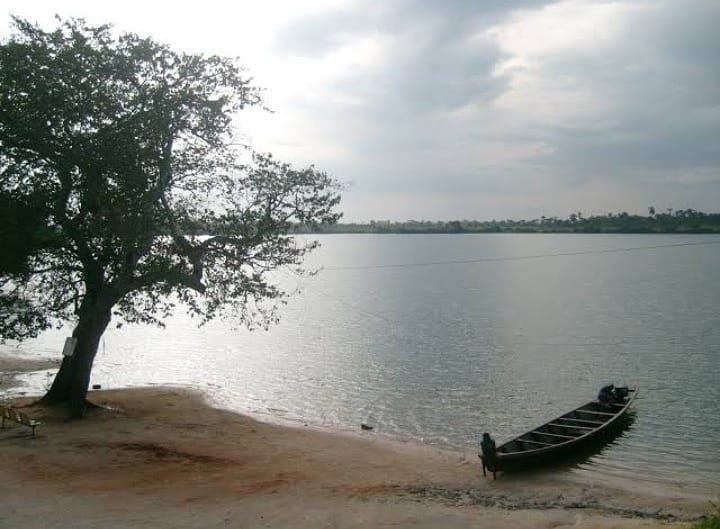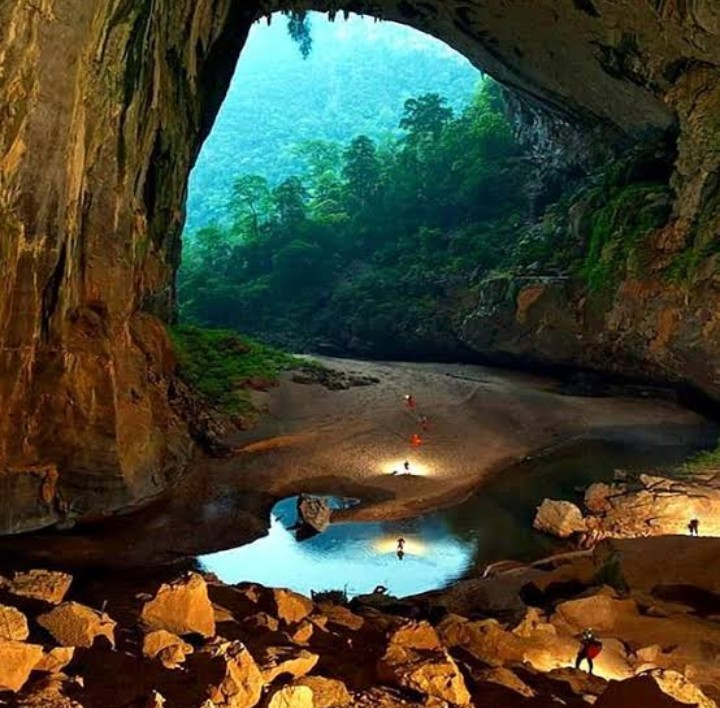
CHINUA ACHEBE - THE QUINTESSENTIAL INTELLECTUAL
Whenever the phrase “IgboNwereMmadu” is used, the name Chinua Achebe comes to mind. He is adjudged by many to have played the foremost role in telling the story of Ndigbo to the world. He used his books and essays to discuss the
Whenever the phrase “IgboNwereMmadu” is used, the name Chinua Achebe comes to mind. He is adjudged by many to have played the foremost role in telling the story of Ndigbo to the world. He used his books and essays to discuss the

way of life of Ndigbo. Prominent among these books is the globally acclaimed bestseller, “Things Fall Apart”.
Chinualumogu Albert Achebe was born on November 16, 1930, in Ogidi, Anambra State, Nigeria to Isaiah Okafo Achebe and Janet Anaenechi Iloegbunam Achebe. He had a happy
Chinualumogu Albert Achebe was born on November 16, 1930, in Ogidi, Anambra State, Nigeria to Isaiah Okafo Achebe and Janet Anaenechi Iloegbunam Achebe. He had a happy
childhood. Growing up, Achebe enjoyed listening to folklores told to him by his mother and his sister Zinobia.
His formal education started at St Philip’s Central School Ogidi, in 1936. He distinguished himself as an excellent pupil with the best handwriting and reading skills.
His formal education started at St Philip’s Central School Ogidi, in 1936. He distinguished himself as an excellent pupil with the best handwriting and reading skills.
He enjoyed school a great deal. Achebe departed from the family tradition of attending the legendary Denis Memorial Grammar School (DMGS) Onitsha, and with the nudging of his older brother attended the new but equally highly reputed Government College Umuahia. In Umuahia he had
the best of tutelage from mostly Oxford-educated Britons and made wonderful friends. He made the school proud by becoming one of the best students during the National University Entrance Exams that earned him a scholarship to study medicine. He was one of the pioneer students in
the newly established University College, Ibadan (now University of Ibadan), the first University in the country, founded in 1948. He had to leave his first course of study at UCI, medicine to pursue a Bachelors degree in English, History, and Religion. A decision that was
fundamental to the greatness he achieved, though it came with a price, he lost his scholarship.
The new course exposed him and made him critical of European literature and writings about Africa. He got very disturbed after reading Joyce Cary’s 1939 work, Mister Johnson.
The new course exposed him and made him critical of European literature and writings about Africa. He got very disturbed after reading Joyce Cary’s 1939 work, Mister Johnson.
The book describes a cheerful Nigerian man who worked for an abusive British storeowner. The portrayal of its Nigerian characters as either savages or buffoons got Achebe infuriated and ignited in him, the decision to become a writer.
Achebe is undoubtedly one of the greatest African authors that ever lived. His debut as a writer was a piece, “Polar Undergraduate”, published in the University Herald in 1950. He also wrote essays published in The Bug. This literary giant of international repute would go on to
become the editor of the University Herald. While still as an undergraduate, he moved from writing pieces to writing stories. In his first short story, “In a Village Church”, he combined details of life in rural Nigeria with Christian institutions and icons.
This style of writing manifested in almost all his writings.
After graduation, he got a job with the Nigerian Broadcasting Service (NBS), in 1954. He distinguished himself at NBS and promotions came rapidly that within a short period, he became the Controller of the Nigeria
After graduation, he got a job with the Nigerian Broadcasting Service (NBS), in 1954. He distinguished himself at NBS and promotions came rapidly that within a short period, he became the Controller of the Nigeria
Broadcasting Service, Eastern Branch. It was while at this job that he met his wife, Christie.
Soon after, he moved to Lagos for a new position at the Nigerian Broadcasting Corporation (NBC). It was at NBC that he had the experience that would change his life story – the
Soon after, he moved to Lagos for a new position at the Nigerian Broadcasting Corporation (NBC). It was at NBC that he had the experience that would change his life story – the
discovery of Things Fall Apart. In his own words, “I was conscripted by the story, and I was writing it at all times-whenever there was an opening, it felt like a sentence, an imprisonment of creativity”. The book became a literary classic, as one of the first African novels to
sell over twenty million copies and is translated into at least sixty-one languages. The book made Achebe famous and the pioneer of modern African literature.
In 1958, Achebe co-founded a publishing company in Enugu with his closest friend, Christopher Okigbo, the Poet, who died
In 1958, Achebe co-founded a publishing company in Enugu with his closest friend, Christopher Okigbo, the Poet, who died
during the Biafra war. Achebe is not only a quintessential writer, he is a man of vision, a philosopher, and a great Igbo man, who is proud of his roots. He played an active role during the Nigeria-Biafra War as a roving ambassador and in other strategic roles.
On his return
On his return
from a tour of the United States, lecturing at different Universities, he was appointed research fellow at the University of Nigeria and later became a Professor of English from 1976 to 1981 and Professor Emeritus from 1985. Achebe served as Director at Heinemann Educational
Books Limited and Nwankwo-Ifejika Limited.
In 1990, the great Iroko suffered an automobile accident in Nigeria that left him partially paralyzed. As a result, he moved to the United States, where he taught at Bard College in Annandale-on-Hudson, New York.
In 1990, the great Iroko suffered an automobile accident in Nigeria that left him partially paralyzed. As a result, he moved to the United States, where he taught at Bard College in Annandale-on-Hudson, New York.
Twice, he refused Nigeria’s National Honours as “Commander of the Federal Republic” in 2004 and 2011, citing corruption and bad leadership as reasons for turning down the highly placed national awards.
Things Fall Apart, was Achebe’s debut novel and classic. It is set in a
Things Fall Apart, was Achebe’s debut novel and classic. It is set in a
fictional group of Igbo villages sometime around the beginning of the twentieth century, beginning with an episodic, almost dreamlike chronicle of village life through the family of Okonkwo (the novel's protagonist) in his village, Umuofia. It recounts a stunning moment in
African history - its colonization by Britain. It carefully re-creates tribal life before the arrival of Europeans in Africa and then details the jarring changes brought on by the advent of colonialism and Christianity. The spectacular brilliance of the book is that it is a
parable that examines and exposes the colonial experience from an African perspective. Many have described it as a landmark representation of the destructive consequences of European colonialism. The novel was first published by William Heinemann Limited in Great Britain on
June 17, 1958. It earned Achebe the title of "the man who invented African literature."
In recognition of the greatness of this novel and its contributions to global literary development, the Centre for Memories – Ncheta Ndigbo declared June 17 as “Things Fall Apart Day”, to
In recognition of the greatness of this novel and its contributions to global literary development, the Centre for Memories – Ncheta Ndigbo declared June 17 as “Things Fall Apart Day”, to
be celebrated annually, across the world.
Other books by Achebe include:
No Longer at Ease – 1960
Arrow of God– 1964
A Man of the People– 1966
Chike and the River – 1966
The Trouble with Nigeria – 1983
Anthills of the Savanah– 1987
Home and Exile– 2000
There was a Country – 2012
Other books by Achebe include:
No Longer at Ease – 1960
Arrow of God– 1964
A Man of the People– 1966
Chike and the River – 1966
The Trouble with Nigeria – 1983
Anthills of the Savanah– 1987
Home and Exile– 2000
There was a Country – 2012
Achebe also published several collections of short stories and children’s books, including How the Leopard Got His Claws (1973; with John Iroaganachi). Beware, Soul-Brother (1971), and Christmas in Biafra (1973) are collections of poetry. Another Africa (1998) combines an essay
and poems by Achebe with photographs by Robert Lyons. Achebe’s books of essays include Morning Yet on Creation Day (1975), Hopes and Impediments (1988), Home and Exile (2000), The Education of a British-Protected Child (2009). He expressed great brilliance, prowess, and wit
through his writing and paved the way for a whole generation of African writers, who would emerge later.
The eminent novelist wears a lot of caps:
A Novelist
Short story writer
A Lecturer
A Poet
A Public Speaker
A Leader
A Social Critic
An Educationist
A Trailblazer
The eminent novelist wears a lot of caps:
A Novelist
Short story writer
A Lecturer
A Poet
A Public Speaker
A Leader
A Social Critic
An Educationist
A Trailblazer
A Mentor and a Role Model
A Philosopher
A Man of Vision
In 2007 he won the Man Booker International Prize. From 2009 until his death, he served as David and Marianna Fisher University Professor and Professor of African Studies at Brown University. He has a litany of global
A Philosopher
A Man of Vision
In 2007 he won the Man Booker International Prize. From 2009 until his death, he served as David and Marianna Fisher University Professor and Professor of African Studies at Brown University. He has a litany of global
recognition. He died on March 21, 2013.
The Centre for Memories and indeed Ndigbo fondly remember and celebrate a great, worthy, and illustrious Igbo son, a literary icon, a renowned novelist, and a master storyteller. One who, with his plethora of masterpieces, helped to
The Centre for Memories and indeed Ndigbo fondly remember and celebrate a great, worthy, and illustrious Igbo son, a literary icon, a renowned novelist, and a master storyteller. One who, with his plethora of masterpieces, helped to
showcase, celebrate, and extol Igbo culture and traditions and is known as the father of African literature. CFM and Ndigbo are proud of you.
• • •
Missing some Tweet in this thread? You can try to
force a refresh






























